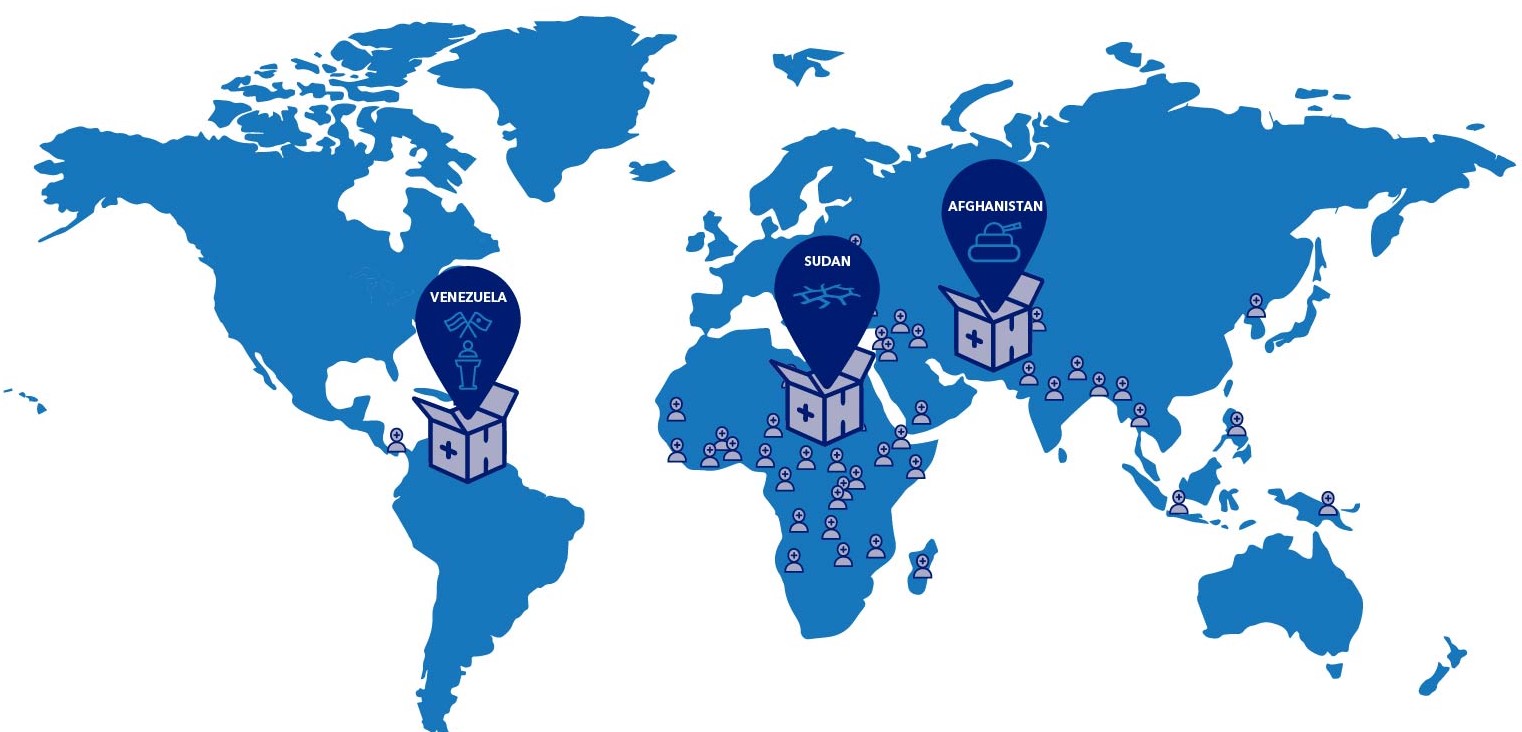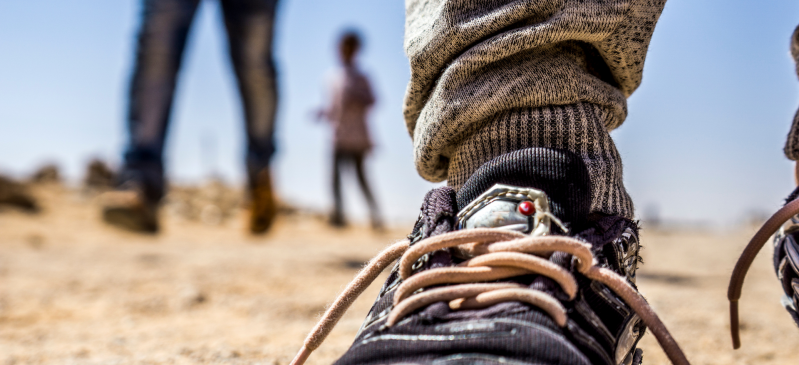Building healthy futures: strengthening emergency response and preparedness
Amsterdam, 20 June 2022 - This year marks IDA’s 50th anniversary. Counting down to November 2022 we are looking back at some of our key activities. This includes emergency response, which has been an important part of our work for more than 25 years.
Universal health coverage - bridging the gap in access to medicines
When emergencies occur, re-establishing health services - including the right medicines and medical products covering primary healthcare needs - is a critical priority. According to WHO, 83% of high-risk countries have interagency preparedness plans in place, however many of these countries lack the minimum capacities necessary to quickly identify and anticipate to known vulnerabilities. Emergencies caused by events such as natural disasters, conflict, disease outbreaks vary in scale, complexity and consequences.
Since starting our emergency response activities, IDA has always closely worked together with customers and partners to understand their specific needs. In the early days we were involved by UN organisations in defining the composition of the first editions of the Interagency Emergency Health Kit (IEHK).
This has led to extensive experience in a variety of kits (standard and custom-made), helping our customers with the selection of the right kit modules or the composition of the content to meet their specific requirements.
Providing kitting solutions is a complex process of sourcing, procurement, quality assurance, logistics, kit assembly and warehousing, therefore, we relocated IDA’s kitting facility to Dubai in 2019. Strategically located for our manufacturers, suppliers and customers, at the crossroad between Asia, Africa, and Europe, close to both airport and seaport we can ensure fast shipments to any location especially during emergency response.
Impact
Starting in the late 90’s until today we have supplied emergency response kits to almost all major emergencies in low- and middle-income countries (LMICs) in the world.
Over the past years, IDA’s kits have helped our customers treat over 23 million patients by supplying IDA’s kits to more than 50 countries, including Democratic Republic of Congo, Mozambique, Nigeria, Somalia, South Sudan, Venezuela and South-East Asia, Syrian Arab Republic, Afghanistan, Yemen and more recently Ukraine.
Recent examples of impactful emergency response projects were IEHK and malnutrition kits for Afghanistan, Essential medical supplies for Sudan and medicines and medical supplies for Ukraine.

Building healthy futures and sustainable value chains
Emergency response will be an important topic for the years to come with globalisation, international travel and trade having further increased the risk of transmission of diseases. In addition more focus has been put on climate change and the effects it has on natural disasters such as floods, droughts and water shortages.
IDA is investigating how we can provide our emergency response solutions most effectively and sustainably, e.g. by looking at building local capacity in the region - allowing faster response, but also shortening supply chains. Over the years we have built an extensive agent and distributor network servicing our customers on a regional level, and we are further expanding our locally-based manufacturers’ portfolio to better cater to the demand in our destination countries and regions.
To bring down the footprint in the supply chain of Emergency Response goods, we are looking at ways on how to be more efficient. From calculating our CO2 emissions, minimising waste from packaging and sourcing sustainable products, we are working with innovative partners on a more sustainable way of kit creation including focus on greening medical supplies.
Together with our customers and partners we will continue to make a difference in the lives of millions of people in low- and middle-income countries worldwide, when it is needed most.

